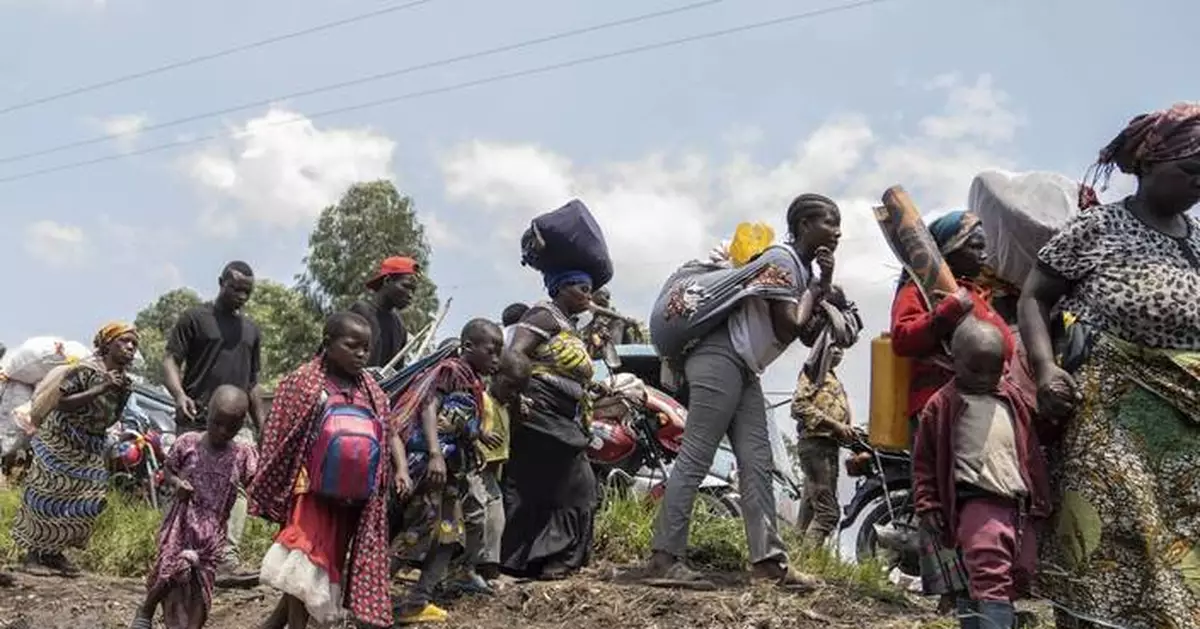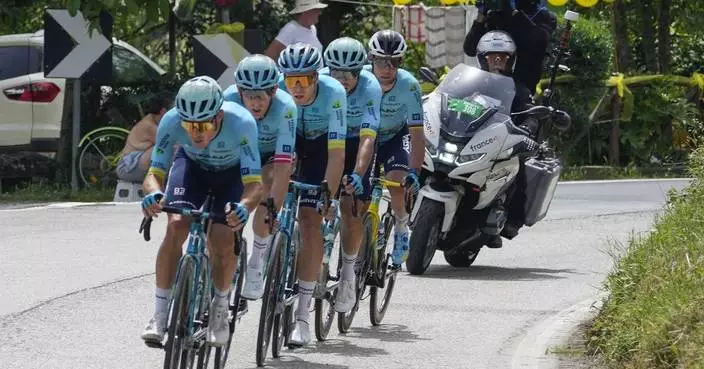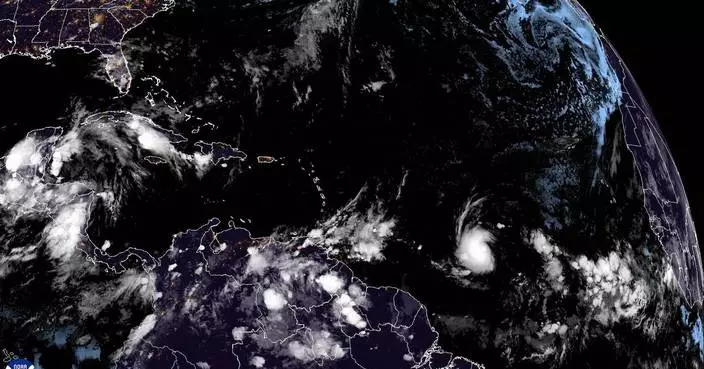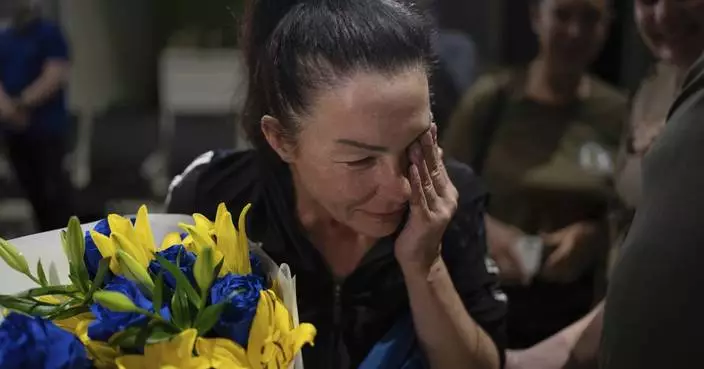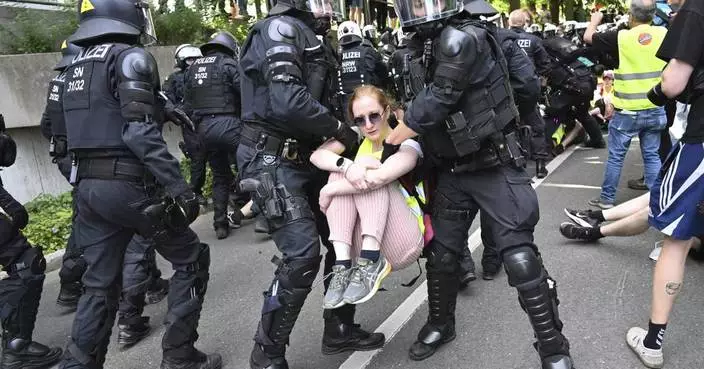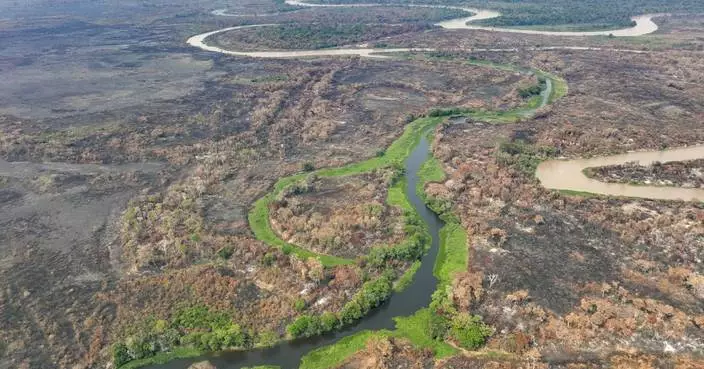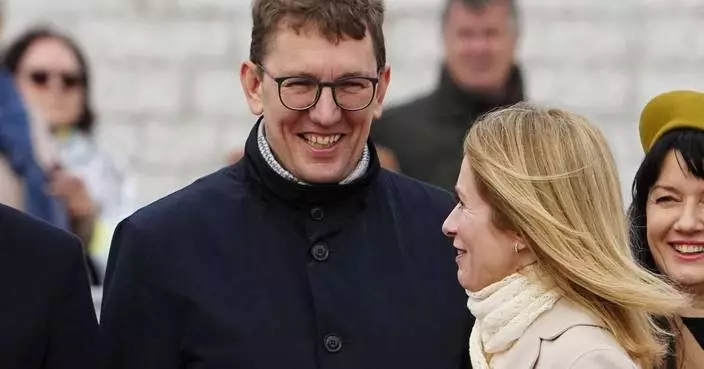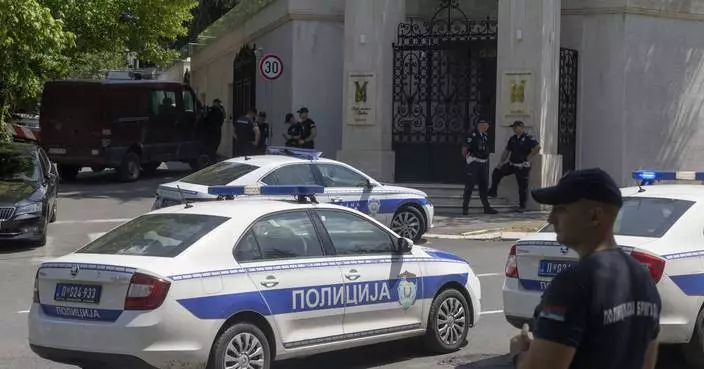UNITED NATIONS (AP) — The decades-old conflict in Congo’s mineral-rich east has “drastically deteriorated” since early 2022, and gotten even worse since last October, with sharp increases in sexual violence, the number of wounded, and child recruitment, the top Red Cross official in the country said Wednesday.
Francois Moreillon called Congo a “double-edged crisis,” with the last 30 years of conflict weakening the capacity of government, including at local levels, to deliver basic services such as water, education and food. When it came to protecting civilians, Moreillon said the crisis was “extremely acute.”
Eastern Congo has struggled with armed violence as more than 120 groups fight for power, land and valuable mineral resources, while others try to defend their communities. Some armed groups have been accused of mass killings.
The head of the International Committee of the Red Cross, known as the ICRC, said “all indicators are going through the roof” since Oct. 1 when fighting resumed between Congolese government forces with their allies, and the M23 rebel group.
Congo’s President Felix Tshisekedi, along with the U.S. and U.N. experts, accuses neighboring Rwanda of giving military backing to M23. Rwanda denies the claim, but in February it effectively admitted that it has troops and missile systems in eastern Congo to safeguard its security, pointing to a build-up of Congolese forces near the border.
Moreillon told several reporters at the office of the ICRC's U.N. envoy that the number of displaced Congolese rose from 5.6 million in early 2022 to nearly 7.4 million now, which makes Congo “one of the most serious crises for displacement on the planet.”
He said another escalating indicator is the level of sexual violence. In Goma, the largest city in eastern Congo, he said the number of incidents of sexual violence in the first half of 2024 rose 90% compared with 2023 — from 7,500 incidents last year to around 15,000 this year.
Moreillon cited the case of a woman the ICRC cared for who had been raped twice and explained that women in groups went to fetch wood “taking condoms with them to try to convince the rapist to wear them while they were raped." This was not just to prevent getting pregnant or sexually transmitted diseases, but also to prevent them from being ordered to leave the house if their husbands learned they were raped, he said
Moreillon said sexual violence can not only be a weapon of war but also a product of decades of war where “anyone with a gun feels he can do whatever he wants” — and the fact that there is impunity for these crimes “does not help."
The ICRC has also witnessed an increase in child recruitment, with estimates that it's increased roughly 80% in some areas. “That could be only the tip of the iceberg,” he said.
A key reason is that fighting has gotten so intense that armed groups need new recruits to replace dead combatants, he said, and children can either be convinced or forced.
Several kids he interviewed said they joined because they thought they would get respect, he said. When families don’t give their children to armed groups they are “taxed” and then hand them over to the recruiters.
Another indicator is the number of wounded civilians seeking treatment, Moreillon said.
The ICRC supports three hospitals in eastern Congo including one in Goma where it had to increase the number of surgical teams from two last year to three this year who are working day and night, he said.
Last year, Moreillon said, 1,050 cases were treated at the Goma hospital, and just in February this year the ICRC treated 350 cases — a third of last year’s caseload in just one month.
“So that’s a clear indicator of the severity of the intensity of the conflict,” he said.
The ICRC head in Congo said what has changed is that more sophisticated weapons are being used combined with increased fighting in crowded urban settings.
He said 45% of those wounded by weapons are civilians, and about 40% of the wounds are caused by shrapnel which wasn’t the case last year when most wounds were caused either by bullets or knives.
What about deaths? Moreillon said it’s very difficult to get figures, but if the number of wounded “is drastically increasing” this must also be the case for the number killed.
Moreillon appealed to donors to help the Congolese in need, saying his budget for Congo this year — 85 million Swiss francs ($95 million) — is only 22% funded.
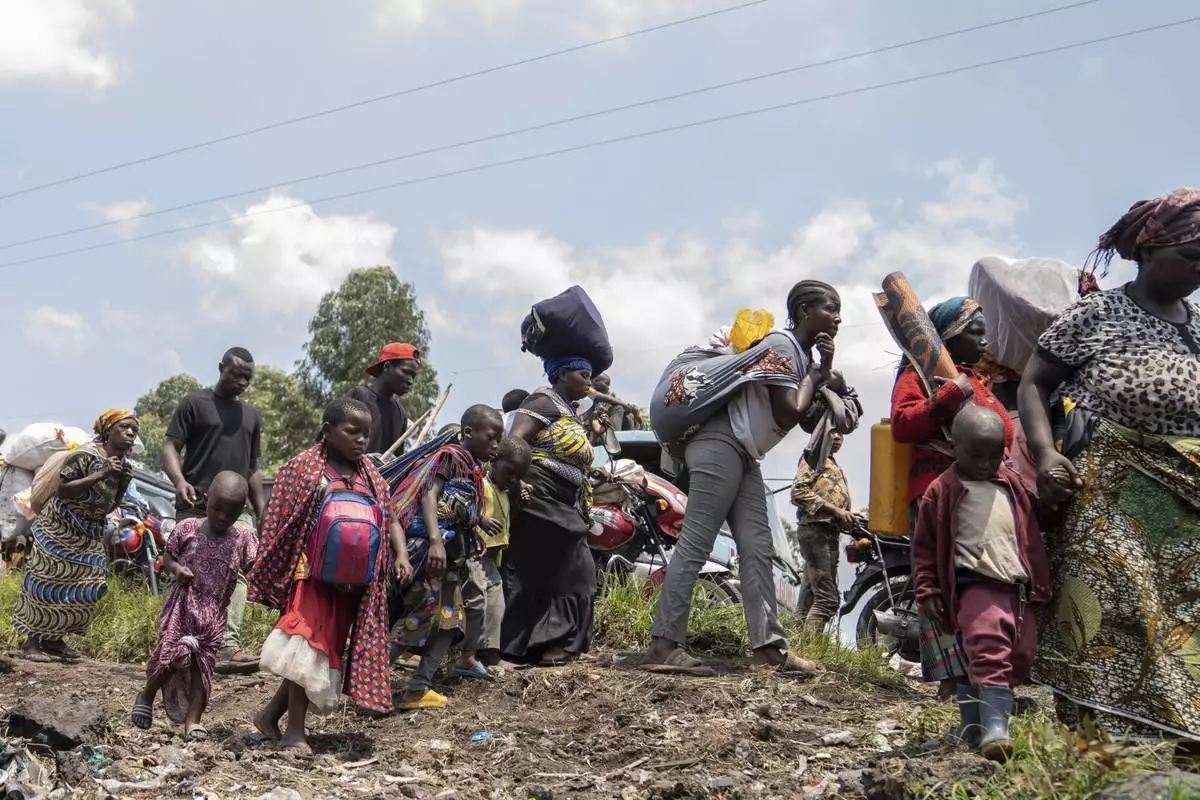
FILE -Thousands who are fleeing the ongoing conflict between government forces and M-23 rebels reach the entrance the Democratic Republic of Congo eastern city of Goma, Feb. 7, 2024. The decades-old conflict in Congo’s mineral-rich east has “drastically deteriorated” since early 2022 and gotten even worse since last October, with sharp increases in sexual violence, the number of wounded and child recruitment, the top Red Cross official in the country said Wednesday. (AP Photo/Moses Sawasawa, File)
SAN FRANCISCO (AP) — Orlando Cepeda, the slugging first baseman nicknamed “Baby Bull” who became a Hall of Famer among the early Puerto Ricans to star in the major leagues, has died. He was 86.
The San Francisco Giants and his family announced the death Friday night, and a moment of silence was held as his photo showed on the scoreboard at Oracle Park midway through a game against the Los Angeles Dodgers.
“Our beloved Orlando passed away peacefully at home this evening, listening to his favorite music and surrounded by his loved ones,” his wife, Nydia, said in a statement released through the team. “We take comfort that he is at peace.”
It’s been a heartbreaking month for the Giants given Cepeda’s death followed that of Hall of Famer Willie Mays, who died 10 days earlier on June 18 at age 93.
“Man, what another gut punch,” said Giants manager Bob Melvin, who grew up in the Bay Area cheering for the team. “Another just incredible personality and just beloved here. Statue out front. The numbers he put up, there are a lot of legends here and he’s certainly right in the middle of that. To have it so close in proximity to Willie, it’s kind of staggering.”
Cepeda was a regular at Giants home games through the 2017 season until he dealt with some health challenges. He was hospitalized in the Bay Area in February 2018 following a cardiac event.
One of the first Puerto Rican stars in the majors but limited by knee issues, he became Boston’s first designated hitter and credits his time as a DH for getting him enshrined into the Hall of Fame in 1999 as selected by the Veteran’s Committee.
“Orlando Cepeda’s unabashed love for the game of baseball sparkled during his extraordinary playing career, and later as one of the game’s enduring ambassadors,” Hall of Fame Chairman Jane Forbes Clark said. “We will miss his wonderful smile at Hall of Fame Weekend in Cooperstown, where his spirit will shine forever, and we extend our deepest sympathies to the Cepeda family.”
When the Red Sox called Cepeda in December 1972 to inquire whether he’d like to be their first designated hitter, the unemployed player accepted on the spot.
“Boston called and asked me if I was interested in being the DH, and I said yes,” Cepeda recalled in a 2013 interview with The Associated Press in the 40th year of the DH. “The DH got me to the Hall of Fame. The rule got me to the Hall of Fame.”
He didn’t know what it would mean for his career, acknowledging, “I didn’t know anything about the DH.” The experiment worked out beautifully for Cepeda, who played in 142 games that season — the second-to-last in a decorated 17-year major league career. The A’s had released Cepeda only months after acquiring him from Atlanta on June 29, 1972.
Cepeda was celebrated at Fenway Park on May 8, 2013, for a ceremony celebrating his role as designated hitter. The Red Sox had invited him for their first home series of the season but his former Giants franchise was honoring the reigning World Series champions at the same time.
“It means a lot,” Cepeda said then. “Amazing. When you think everything’s finished, it’s only the beginning.”
He said then-A’s owner Charlie Finley sent him a telegram to call him within a 24-hour period or he’d be released. Cepeda didn’t meet the deadline and was let go in December 1972. He played in only three games for Oakland after the A’s acquired him for pitcher Denny McLain. Cepeda was placed on the disabled list with a left knee injury. He had 10 knee operations in all, sidelining him four different years.
Cepeda had been a first baseman and outfielder before joining the first class of baseball’s designated hitters under the new American League rule.
“They were talking about only doing it for three years,” he said. “And people still don’t like the idea of the DH. They said it wouldn’t last.”
The addition of the DH opened new opportunities for players such as Cepeda and others from his era who could still produce at the plate late in their careers but no longer played the field with the spot-on defense of their primes.
Cepeda was thrilled to have another chance.
He hit .289 with 20 home runs and 86 RBIs in 1973, starting off strongly with a .333 average and five homers in April. He drove in 23 runs in August on the way to DH of the Year honors. On Aug. 8 at Kansas City, Cepeda hit four doubles.
“That was one of the best years,” Cepeda recalled, “because I was playing on one leg and I hit .289. And I hit four doubles in one game. Both my knees were hurting, and I was designated hitter of the year.”
Cepeda topped Baltimore’s Tommy Davis (.306, seven homers, 89 RBIs) and Minnesota’s Tony Oliva (.291, 16 HRs, 92 RBIs) for top DH honors.
“It wasn’t easy for me to win the award,” Cepeda said. “They had some great years.”
Cepeda knew little English when he arrived in the minor leagues in the mid-1950s, putting him among the first wave of Spanish-speaking players thrown into a different culture to play professional baseball, build new lives and send money back home.
It was an opportunity to succeed in a sport he loved, as long as daunting challenges off the field could be overcome.
Early on, Cepeda was told by a manager to go home to Puerto Rico and learn English before coming back to his career in the U.S.
“Coming here my first year, everything was a novelty to me, a surprise,” Cepeda recalled in a 2014 interview with the AP. “When I came to Virginia, I was there for one month and my father died. My dad said, ‘I want to see my son play pro ball,’ and he died the day before I played my first game in Virginia.
“From there I went to Puerto Rico and when I came back here, I had to come back because we didn’t have no money and my mother said, ‘You’ve got to go back and send me money, we don’t have money to eat,’” he said.
Cepeda had continued to be encouraged watching so many young players from Latin America arriving in the United States with better English skills, thanks in large part to all 30 major league organizations putting more emphasis into such training through academies in the Dominican Republic and Venezuela.
There also are English classes offered to young players during spring training and into extended spring, plus through the various levels of the minor leagues.
“Orlando overcame challenges throughout his life to build a Hall of Fame career," MLB Commissioner Rob Manfred said in a statement. “This beloved figure from Puerto Rico was one of the many players of his era who helped turn baseball into a multicultural game.”
He had his troubles, too.
Cepeda was arrested in May 2007 after being pulled him over for speeding when officers discovered drugs in the car.
The California Highway Patrol officer arrested Cepeda after finding a “usable” amount of a white-powder substance that likely was methamphetamine or cocaine, while marijuana and a syringe were also discovered.
After his playing career ended, Cepeda was convicted in 1976 in San Juan, Puerto Rico, of smuggling marijuana and sentenced to five years in prison.
That conviction was probably one reason he was not elected to the Hall of Fame by the Baseball Writers’ Association of America. Cepeda eventually was elected by the Veterans Committee in 1999.
Cepeda played first base during his 17 seasons in the majors, beginning with the Giants. He also spent time with St. Louis, Atlanta, Oakland, Boston and Kansas City. In the spring of 1969, Cepeda was traded by the Cardinals to the Braves for Joe Torre.
A seven-time All-Star who played in three World Series, Cepeda was the 1958 NL Rookie of the Year with San Francisco and NL MVP in 1967 with St. Louis, a city sad to see him go in that trade that brought Torre to town. In 1961, Cepeda led the NL with 46 homers and 142 RBIs. Cepeda was a .297 career hitter with 379 home runs.
It wasn’t until after that 1973 season as DH that Cepeda could look back and appreciate all he had accomplished that year — along with the big part he played in history and change in the sport.
“I just did it,” he said of learning the DH. “Every day, I say to myself, how lucky I am to be born with the skills to play ball.”
AP MLB: https://apnews.com/hub/mlb
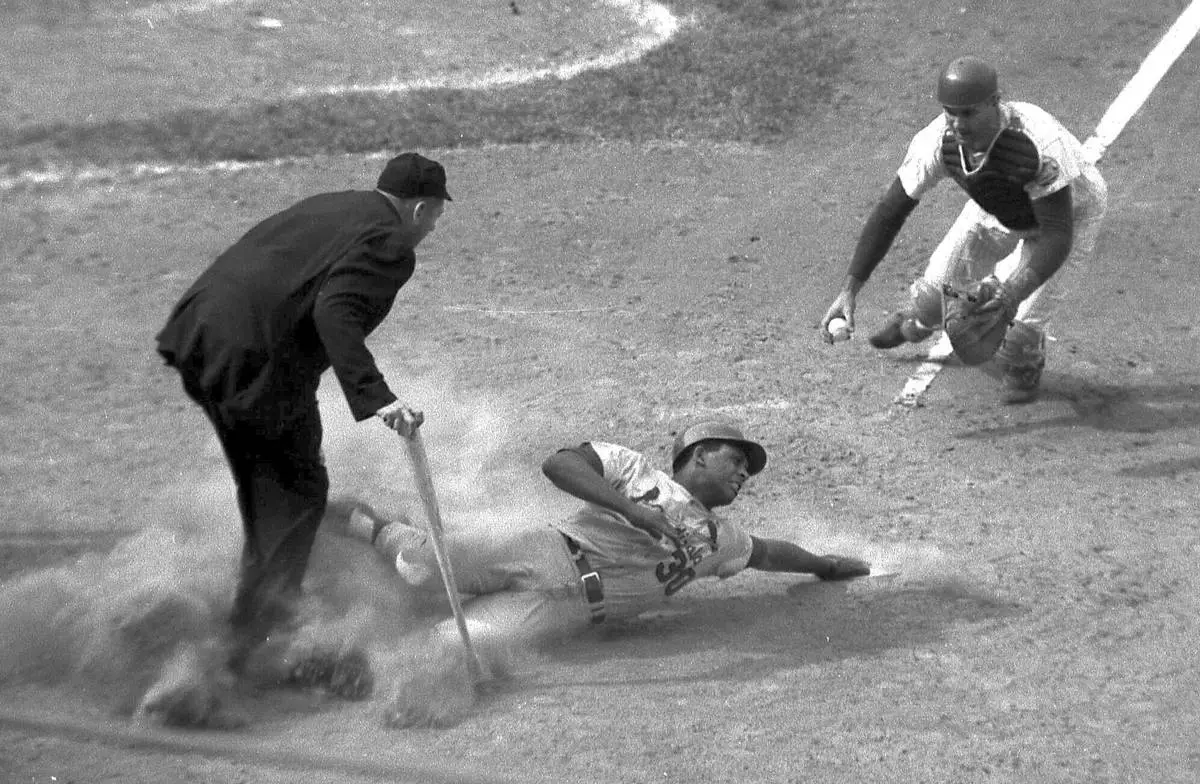
St. Louis Cardinals' Orlando Cepeda scores in the eighth inning of a baseball game as New York Mets catcher J.C. Martin, right, and umpire Tim McCarver, left, watch at Shea Stadium in New York in 1968. Cepeda, the slugging first baseman nicknamed “Baby Bull” who became a Hall of Famer among the early Puerto Ricans to star in the major leagues, has died. He was 86. The San Francisco Giants and his family announced the death Friday night, June 28, 2024, and a moment of silence was held on the scoreboard at Oracle Park midway through a game against the Los Angeles Dodgers. (AP Photo, File)
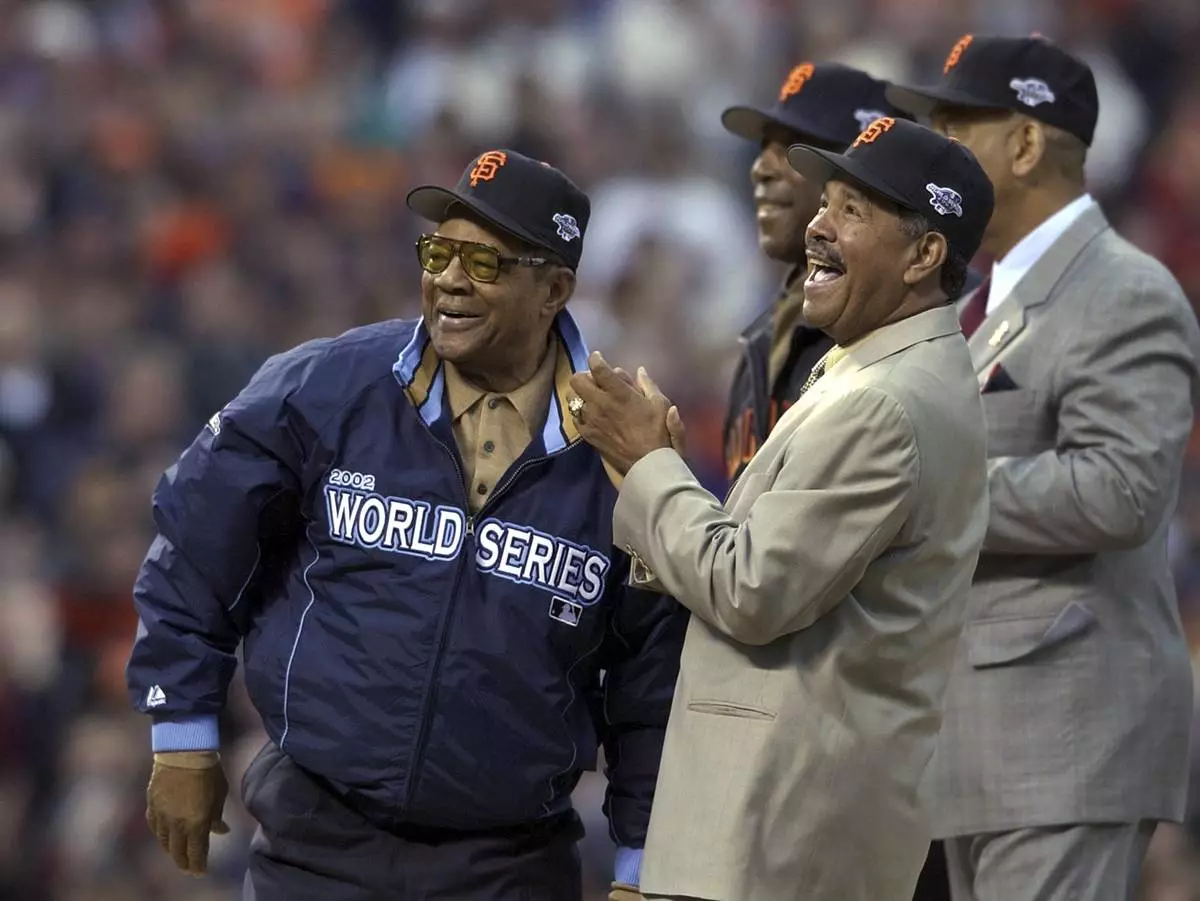
FILE - Willie Mays, left, is joined by former San Francisco Giants' Orlando Cepeda, right, Willie McCovey and Juan Marichal, front, before Game 3 of the World Series between the Giants and the Anaheim Angels in San Francisco,Oct. 22, 2002. Mays, the electrifying “Say Hey Kid” whose singular combination of talent, drive and exuberance made him one of baseball’s greatest and most beloved players, has died. He was 93. Mays' family and the San Francisco Giants jointly announced Tuesday night, June 18, 2024, he had “passed away peacefully” Tuesday afternoon surrounded by loved ones. (AP Photo/Kevork Djansezian, File)
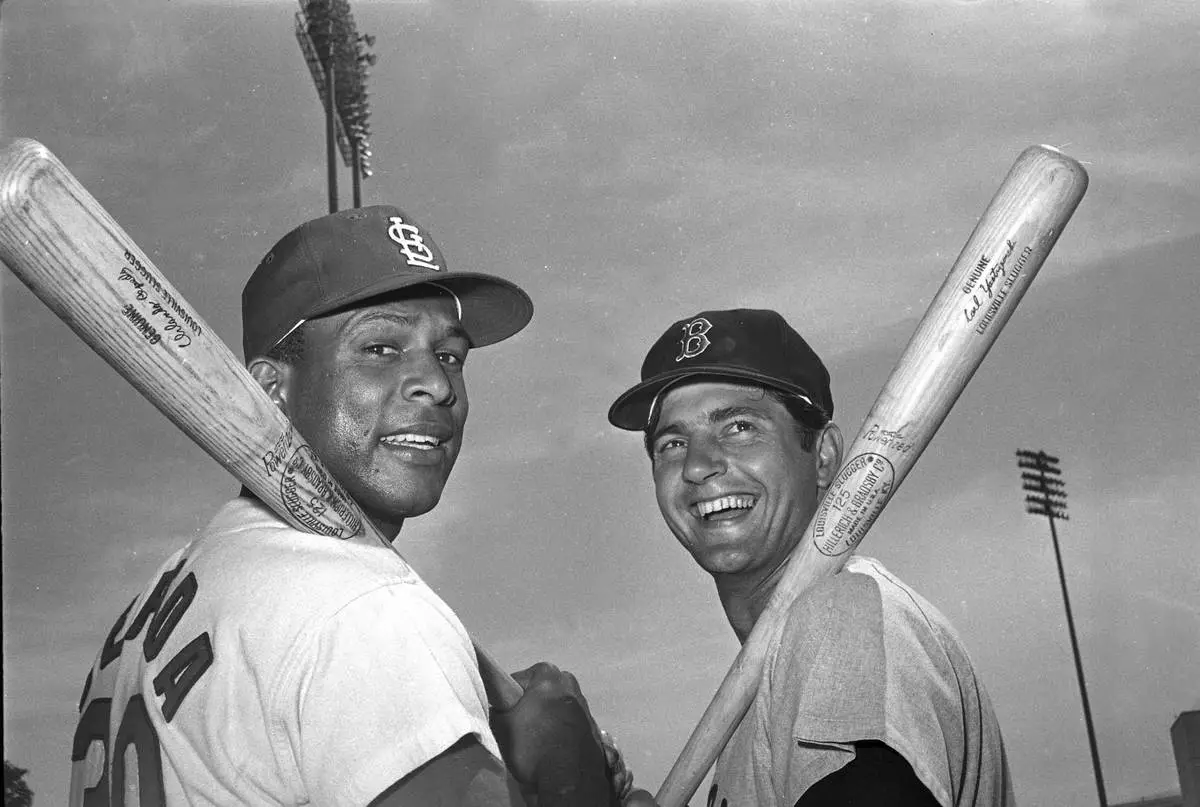
FILE - St. Louis Cardinals' Orlando Cepeda, left, and Boston Red Sox's Carl Yastrzemski pose for a photo in March 1968 in St. Petersburg, Fla. Cepeda, the slugging first baseman nicknamed “Baby Bull” who became a Hall of Famer among the early Puerto Ricans to star in the major leagues, has died. He was 86. The San Francisco Giants and his family announced the death Friday night, June 28, 2024, and a moment of silence was held on the scoreboard at Oracle Park midway through a game against the Los Angeles Dodgers. (AP Photo/Harry Hall, File)
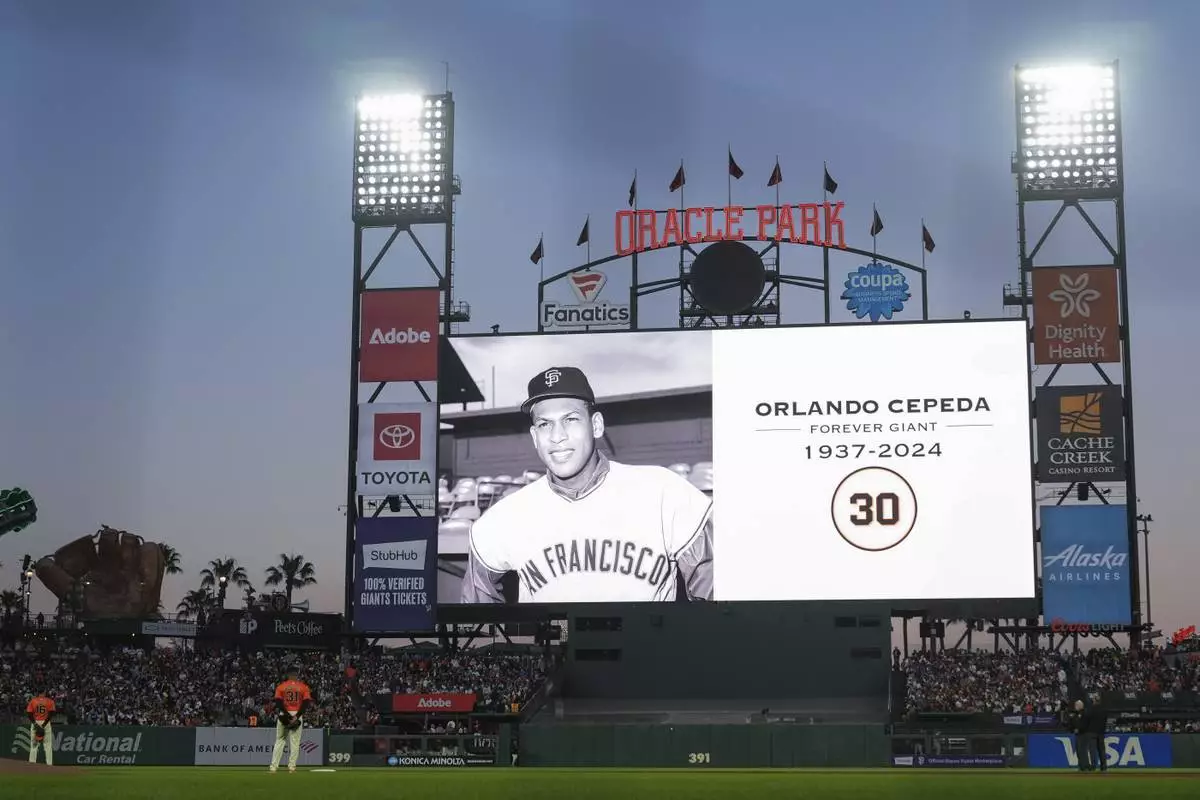
Players stand on the field as the San Francisco Giants announce the death of former baseball player Orlando Cepeda, before the sixth inning of the team's baseball game against the Los Angeles Dodgers, Friday, June 28, 2024, in San Francisco. (AP Photo/Godofredo A. Vásquez)
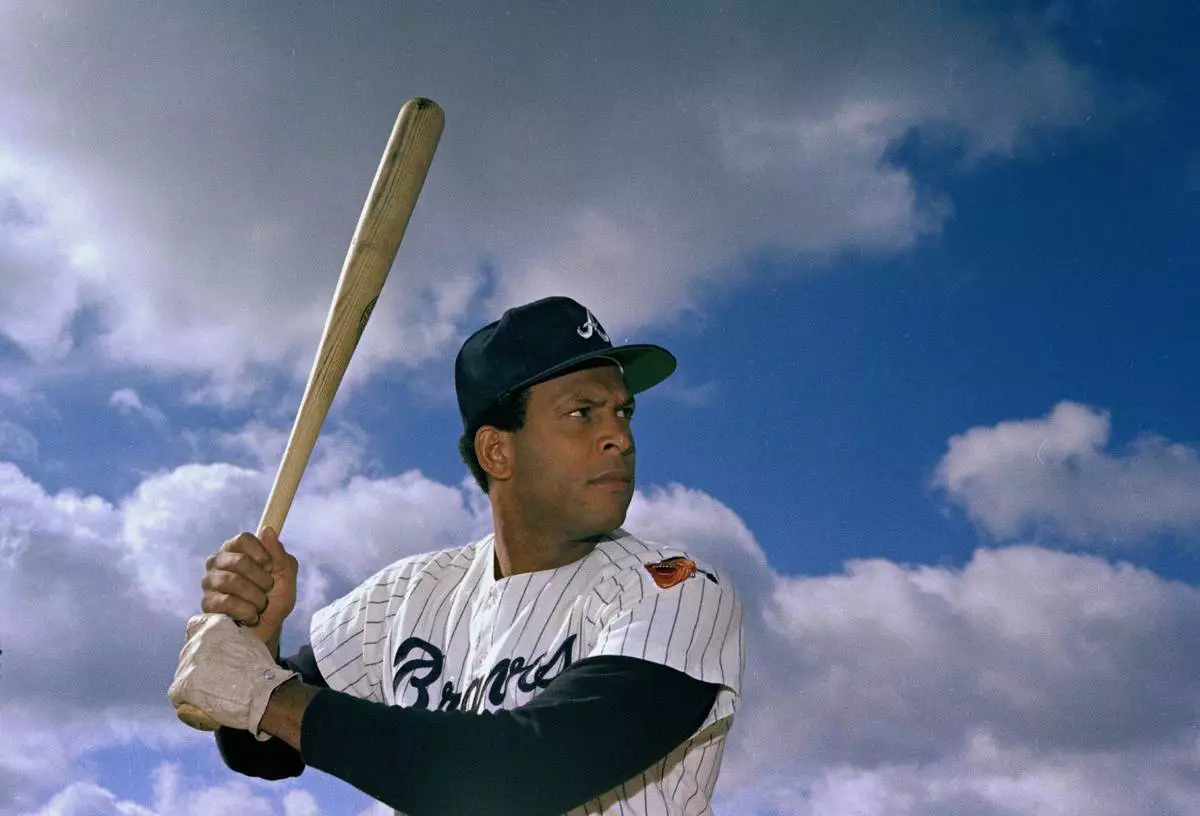
FILE - Atlanta Braves' Orlando Cepeda poses for a photo in 1970, location not known. Cepeda, the slugging first baseman nicknamed “Baby Bull” who became a Hall of Famer among the early Puerto Ricans to star in the major leagues, has died. He was 86. The San Francisco Giants and his family announced the death Friday night, June 28, 2024, and a moment of silence was held on the scoreboard at Oracle Park midway through a game against the Los Angeles Dodgers. (AP Photo, File)



